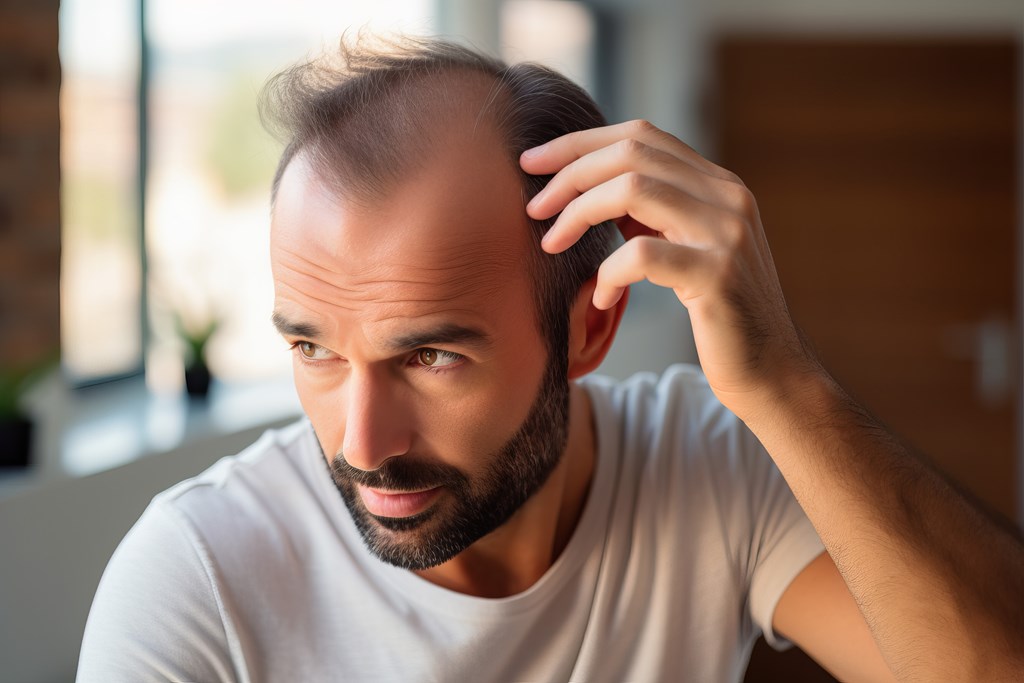
Hair loss is a prevalent concern affecting millions worldwide. Whether due to genetics, hormonal changes, or other factors, the burning question remains: can permanent hair loss be reversed? Let’s dive deep into the science, current treatments, and the latest research to find an answer.
Understanding Hair Loss
To address the possibility of reversing hair loss, it’s crucial to first grasp the different types of hair loss. The most common type is androgenic alopecia, also known as male or female pattern baldness, which is primarily genetic. Another prevalent type is telogen effluvium, a temporary hair loss condition often caused by stress, hormonal changes, or certain medications. Unlike androgenic alopecia, this type of hair loss can often be reversed once the underlying cause is addressed.
Protecting Your Hair: Treatment Options
The treatment your doctor prescribes largely hinges on the cause of your hair loss. For those with androgenetic alopecia, the goal is to fortify the hair follicles, making hair strands thicker, and resulting in an overall denser appearance. Here are some treatments that may help:
- Topical Drugs: The FDA-approved minoxidil is available over the counter for both men and women. It aids in thickening hair follicles and promoting hair lengthening. “If you have a lot of hair, the liquid form might be easier to apply. However, more people experience irritation with the liquid compared to the foam. Consistent use for at least nine months is crucial for improvement.”
- Oral Medications: Recent studies indicate that oral minoxidil, traditionally used to treat high blood pressure, is effective for hair loss. “Its use has surged in the past year. It’s beneficial for those who don’t find topical minoxidil effective or experience scalp irritation.” Other oral treatments include finasteride and spironolactone. However, potential side effects, such as low blood pressure or heart palpitations, should be considered.
- Platelet-rich Plasma Injections: This procedure involves injecting components of your blood into your scalp to stimulate hair growth. Its effectiveness for hair regrowth remains unproven.
- Laser Light Treatments: Devices emitting low-level LED laser light may promote hair growth. Available as combs and helmets, these treatments can be used at home.
- Supplements: While there’s no concrete evidence supporting supplements for hair growth, “If they don’t interfere with your medications, it’s probably okay to try them.”
Early intervention is emphasized, stating, “Once the follicles stop working, the only option to restore your locks is hair transplant surgery.”
The Verdict
While treatments like minoxidil and finasteride can slow hair loss and promote some regrowth, the reality remains that reviving a dead hair follicle is currently impossible. However, with continuous research into stem cell therapies and other innovative treatments, the future holds promise for those grappling with hair loss.
For those experiencing hair loss, consulting a specialist is paramount. Early intervention can significantly impact preserving and potentially regrowing lost hair.
In conclusion, while we cannot fully reverse permanent hair loss with today’s treatments, there’s hope on the horizon. With advancements in medical research and technology, the future looks brighter for those battling hair loss.
If you or someone you know is struggling with hair loss or looking for the best hair transplant clinic, don’t hesitate to speak with TopHairLossClinic experts. They offer guidance, support, and the latest treatment options tailored to individual needs.

